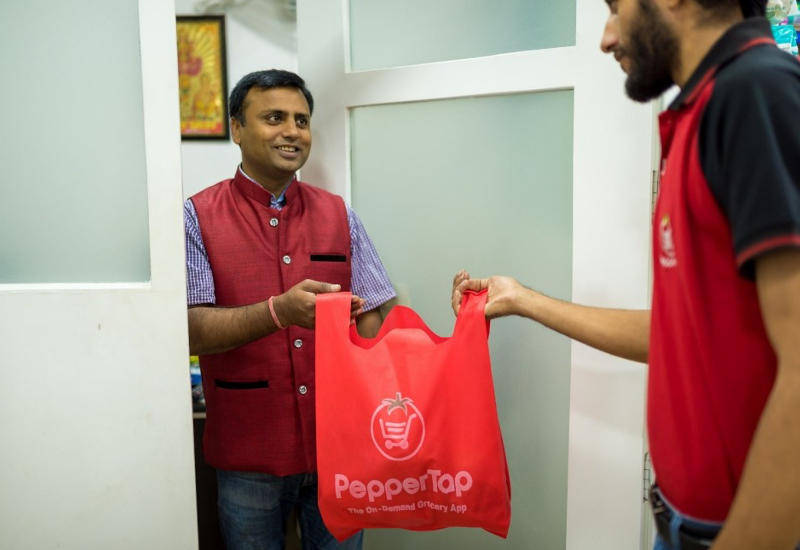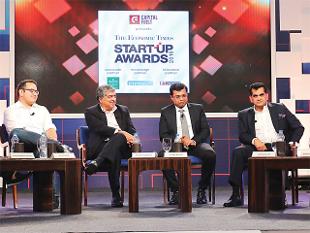I am not a business expert . The views I am presenting in this article are based on my perceptions . Please correct me if I am wrong. Also, this is not a rant. Rather its a call for the talented entrepreneurs of this country to be more fearless.
I personally feel that entrepreneurship is the driving shaft for the wheels of development. During my graduate studies, I took courses in design thinking and basic courses in entrepreneurship. I think entrepreneurs and great companies are a byproduct of providing a solution to a problem. The problems could be huge or could be the smallest ones. The solution , either a product or service should add value and people would be happy to pay for it.
In the recent years India has seen a marked increase in the number of start ups. The country has more than 19,000 technology-enabled startups, led by consumer Internet and financial services startups, the report said. “Indian startups raised $3.5 billion in funding in the first half of 2015, and the number of active investors in India increased from 220 in 2014 to 490 in 2015. As of December 2015, eight Indian startups belonged to the ‘Unicorn’ club (ventures that are valued at $1 billion and upwards).”
A brief look at the companies listed by yourstory [2] reveals that there are more startups in food tech than in the energy industry. Is finding good delicious gourmet food right hour one of the biggest problems of our generation ? A country deprived of the basic necessities is creating entrepreneurs who want to disrupt the way people eat food from restaurants and fine dines. Here is a list of the most innovative companies in India [3]. Compare this to the most innovative companies of the world [4]. Majority of the start ups in India aggregate information and are filled with UI/UX designers who keep improving the user interface till it starts to glitter. I am of the opinion that, all that glitters is not gold.
I was talking to a friend who works for one of the leading PSU’s in India.From technical to managerial, problems are in plenty. The value attached to solving these problems are huge, both economically and socially. But nobody wants to solve these problems. Young engineers, who are recruited in these PSU’s , from the premier engineering colleges of India want to be comfortable with their Government jobs until they crack the famed civil services/CAT or start an e-commerce start up with their buddies.
I will generalize a little and go on to say that majority of the start-up founders are trying to solve problems which interest the venture capitalists. I was talking to a friend who has recently started a company and in his opinion Indian investors are risk averse. The fact that venture capitalists themselves are not ready to take risks is scary to say the least.Creating value or solving problems is seldom on the agenda. There is no denying that they still are trying really hard but unless the youth starts approaching problems, we would never have companies like TESLA originating in our country.
India is plagued by plenty of problems. It has region specific problems as well as problems which are overarching. Water scarcity, lack of uninterrupted water supply, traffic management, better education resources, farm to food supply chain are a few of the notable of them. The sheer size of these problems are huge. All these sectors have a huge amount of inertia involved , but the potential for improvement is huge. It will be difficult to implement but if the entrepreneurs wanted it easy they could have settled with their 9 to 5 jobs. Do we necessarily need to follow the western start ups, replicate and tweak them according to Indian conditions and call ourselves entrepreneurs ?
There are a few startups which are doing a commendable job at solving problems. Companies like husk power systems , farm and farmers, chakra, Infocold , tessol, promethean are a few of them . Please provide links about similar companies in the comment section , which are solving actual problems. I would love to read more about them .But we need many more. I implore rather beg anyone reading this post and dreaming of becoming an entrepreneur to find a problem first. While taking a course in systematic product development, out professor Dr Bruno Gries emphasized that in order to develop a good solution the problem has to be very well defined.
I think all entrepreneurs should follow his advice. There are a plenty of problems , apply your mind, create value ,and you would get the success you want. Money should never be the only objective for forming a company, solving a problem should be.
Source:https://www.linkedin.com/pulse/indian-start-up-culture-its-problems-abhinav-bhaskar?trk=pulse-det-nav_art


